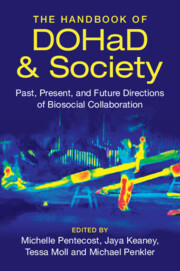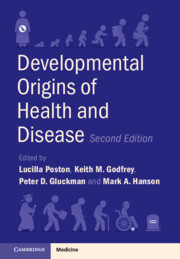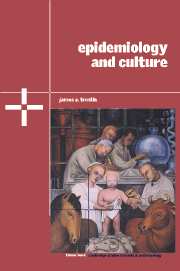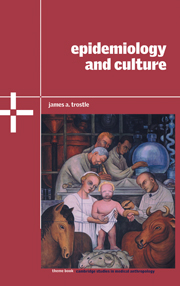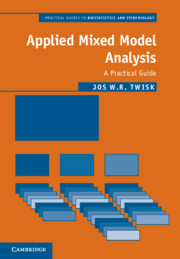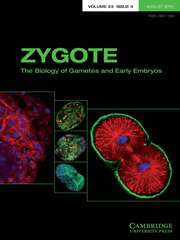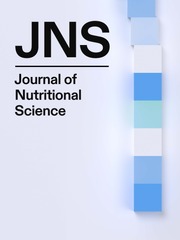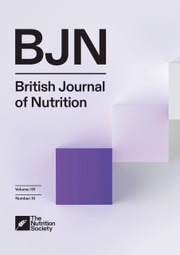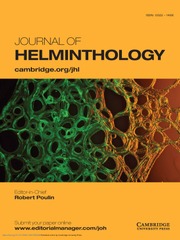The Handbook of DOHaD and Society
Research in the field of Developmental Origins of Health and Disease has had a fundamental impact on our understanding of how environmental experiences and contexts influence the development of health and disease over the entire lifecourse. Covering a wide range of geographic regions, this volume includes an overview of the field, key concepts, and cutting-edge examples of interdisciplinary collaboration. The first reference text covering the interdisciplinary work of DOHaD, a broad list of contents maps the history of DOHaD, showcases examples of biosocial collaboration in action, offers a conceptual toolkit for interdisciplinary research, and maps future directions for the field. The definitive volume on biosocial collaborations in DOHaD, this will be indispensable for scholars working at the intersections of public health, lifecourse epidemiology and the social science of DOHaD. This title is also available as Open Access on Cambridge Core.
- Presents a practical handbook of DOHaD research through a comprehensive conceptual toolkit and case studies of biosocial collaboration in action
- Offers practical conceptual tools for DOHaD researchers across disciplines to design, develop and interpret research findings, and makes social science theory accessible to a diverse audience of DOHaD researchers and practitioners
- Includes future directions for researchers to contemplate
- This title is also available as Open Access on Cambridge Core
Reviews & endorsements
‘This magnificent collection crosses disciplines and continents in its synthesis of exciting scholarship around the past, present, and future of DOHaD. It is a singular achievement, and its readers will be multiple.’ Martyn Pickersgill, Professor of the Sociology of Science and Medicine, Edinburgh Medical School
‘The clearest and most comprehensive account of DOHaD in society ever. Framing the field in terms of its history and with a biosocial lens, the many distinguished authors of this Handbook offer, in combination, a very thorough and erudite reading of DOHaD in its strength (and sometimes weakness). Understanding child health from this perspective queries and questions approaches in public health, clinical practice and policy. A book that sets the standard in this field; a book to cherish and keep close to hand by all those interested and involved in child health, from whatever perspective.’ Stanley Ulijaszek, Emeritus Professor of Human Ecology, University of Oxford
‘In a masterful manner, this Handbook weaves together a rich tapestry of perspectives from across the globe and various disciplines, offering a nuanced yet concise overview of the state of the art of research on DOHaD. Irrespective of your own field - whether you're a medical researcher, a nurse, social scientist, or a policy maker - prepare to see your work in a new light after reading this book.' Barbara Prainsack, Department of Political Science, University of Vienna, Austria
‘A needed, comprehensive, in-depth, and thoughtful source of information important for those performing collaborative DOHaD research as well as those involved in implementation of policy based on this research.’ Joan Ann MacEachen, Doody's Reviews
Product details
June 2024Hardback
9781009201728
366 pages
234 × 156 × 21 mm
0.735kg
Available
Table of Contents
- Introduction: Michael Penkler, Tessa Moll, Jaya Keaney and Michelle Pentecost
- Part I. Mapping the Field's Past:
- 1. Porous bodies, impressible mothers: a global and longue durée perspective Maurizio Meloni and Natasha Rooney
- 2. Transformations of the maternal-fetal relationship in the twentieth century: from maternal impressions to epigenetic states Tatjana Buklijas
- 3. The first 5000 days: making DOHaD, 1989–2003 Mark Hanson and Tatjana Buklijas
- Part II. The Social Life of DOHaD:
- 4. A biosocial return to race? Racial differences in DOHaD and environmental epigenetics Maurizio Meloni, Christopher Kuzawa, Ayuba Issaka and Tessa Moll
- 5. The promise and treachery of nutrition in DOHaD: science, biopolitics, and gender Vivienne Moore and Megan Warin
- 6. Gender, racism and DOHaD Natali Valdez and Martine Lappé
- 7. DOHaD in economics: orthodox and egalitarian approaches Jennifer Cohen
- 8. The 'moral paradox' of DOHaD Luca Chiapperino, Cindy Gerber, Francesco Panese and Umberto Simeoni
- 9. Intergenerational justice, law and DOHaD Isabel Karpin
- Part III. Key Concepts for Biosocial Research:
- 10. Lifecourse Mark Tomlinson, Amelia van der Merwe, Marguerite Marlow and Sarah Skeen
- 11. Syndemics Edna Bosire, Michelle Pentecost and Emily Mendenhall
- 12. Embodiment Ziyanda Majombozi and Mutsawashe Mutendi
- 13. Causal crypticity Sarah S. Richardson
- 14. Intergenerational trauma Jaya Keaney, Henrietta Byrne, Megan Warin and Emma Kowal
- 15. Bioethnography Elizabeth F. S. Roberts, Jaclyn M. Goodrich, Erica C. Jansen, Belinda L. Needham, Brisa N. Sánchez and Martha M. Téllez Rojo
- Part IV. Translations in Policy and Practice:
- 16. Translating evidence to policy: the challenge for DOHaD advocacy Felicia Low, Peter Gluckman and Mark Hanson
- 17. Framing DOHaD for policy and society Chandni Maria Jacob, Michael Penkler, Ruth Muller and Mark Hanson
- 18. The impact of community based participatory DOHaD research Siobhan Tu'akoi, Mark H. Vickers, Celeste Barrett-Watson, Kura Samuel-Ioane, Teaukura Puna, Joseph Drollet and Jacqui L. Bay
- 19. The first 1000 Days and clinical practice in infant mental health Anusha Lachman, Astrid Berg, Fiona C. Ross and Simone M. Peters
- Part V. The Biosocial in Practice:
- 20. Understanding child development: a biosocial anthropological approach to early life Emily H. Emmott and Sahra Gibbon
- 21. Building biosocial collaboration in the HeLTI-South Africa trial Michelle Pentecost, Catherine E Draper, Khuthala Mabetha, Larske M Soepnel and Shane A Norris
- 22. Doing environments in DOHaD and epigenetics Sophia Rossmann and Georgia Samaras
- 23. Narrative choreographies: DOHaD, social justice and health equity Martha Kenney and Ruth Müller
- 24. Interdependence: reworking ontogeny through fishbones and dirty chickens Shivani Kaul and Emily Yates-Doerr
- Part VI. Future Directions:
- 25. Modelling in DOHaD: challenges and opportunities in the era of big data Julie Sigurdardottir and Salma Ayis
- 26. The promise of reversibility in neuroepigenetics research on traumatic memories Stephanie Lloyd, Pierre-Eric Lutz and Chani Bonventre
- 27. Disability in DOHaD and epigenetics: towards inclusive practice Katie Saulnier, Lara Azevedo, Neera Bhatia, Lillian Dipnall, Evie Kendal, Garth Stephenson and Jeffrey M Craig
- 28. Creating good data our way: an Indigenous lens for epidemiology and intergenerational health Sarah Bourke and Raymond Lovett
- 29. DOHaD in the Anthropocene: taking responsibility for anthropogenic biologies Jörg Niewöhner.

